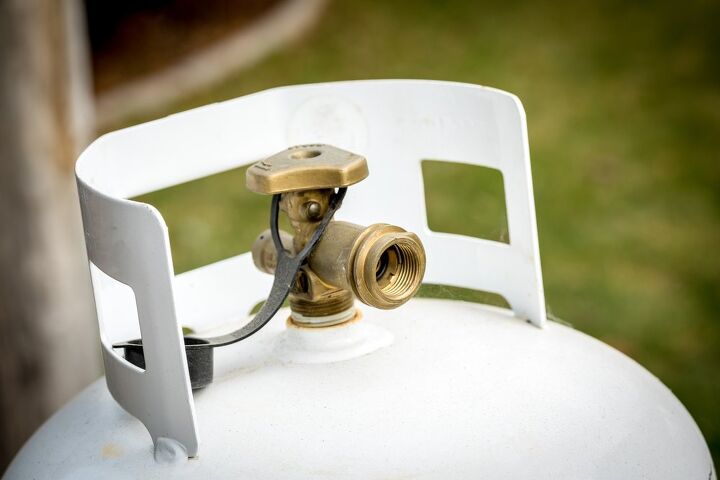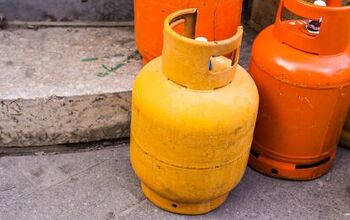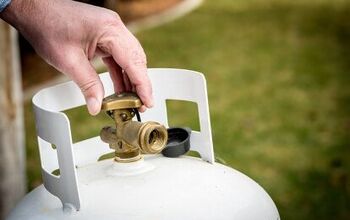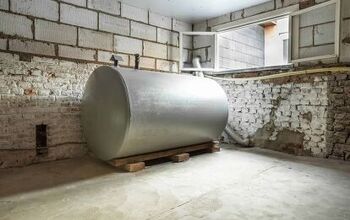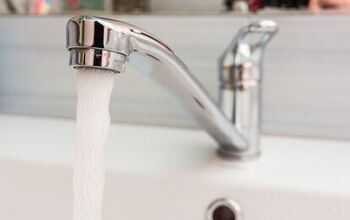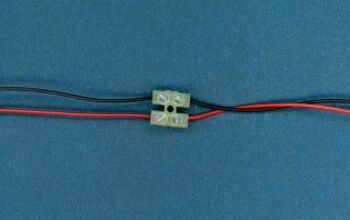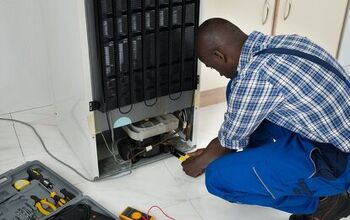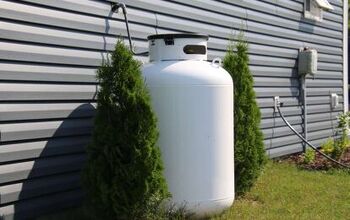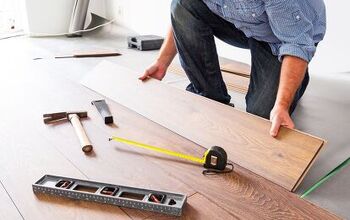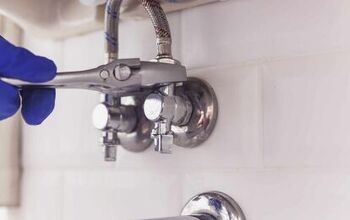What Do I Do If My Propane Tank Is Leaking? (Do This!)

If you own a propane tank, you should know all the safety precautions in dealing with a possible propane tank leaking. Propane safety for you and your family should be number one. If your propane tank springs a leak, there are a few things you can do to fix it.
If your propane tank is leaking, you need to take immediate action to avoid more severe problems and consequences. As soon as you detect the leak, then turn off the propane, leave the area immediately, and report it. It’s essential to know how to identify a leak and repair and store your propane tank properly.
Many homes use propane tanks for various needs, including drying clothes, cooking, and heating their homes. It’s not uncommon for a propane tank to leak, but learning how to handle it is key to avoiding a significant problem. Let’s look a bit deeper into propane and how to prevent or patch a leak.
Do You Need Water or Fuel Tank Installation or Replacement?
Get free, zero-commitment quotes from pro contractors near you.

What Is Propane?
Propane is a liquified petroleum gas that is transportable and compressed into tanks. It has to maintain a specific temperature and pressure in order for you to use it safely. It is a standard household fuel used frequently for cooking.
Propane is a clean-burning fuel that contributes to fewer carbon contents. Most people enjoy using propane for a conventional fuel that is less likely to increase harmful emissions. It is said to reduce the greenhouse effect, if used regularly, by ten percent.
It’s a colorless, odorless gas that can be hard to detect, which can be deadly if not handled correctly. It is an asphyxiant that can cause significant health problems. Making sure you have your propane tank maintained and filled routinely is crucial to the health of others.
Detecting A Propane Leak
Your propane tank might be outside of your home or something you simply use on a backyard grill. Knowing how to detect a propane tank leaking can help in protecting your loved ones. There are few ways you, the homeowner, can test for a leak.
One way to tell is by smelling it. Propane is typically an odorless gas, but manufacturers add a chemical to make it more detectable. If you smell something that resembles rotten eggs, it is easier to detect a leak inside or out.
The next best way to identify a leak, your propane tank will make noise, primarily a hissing sound. Gas is compressed into a tank, and it makes a hissing sound when a crack releases it. When you hear hissing, you need to isolate where the sound comes from to locate the exact leak.
The last step to make sure a propane leak is happening is a home remedy of soap and water. You can mix water and soap, drip the solution on the possible leak, and wait for it to bubble. If the gas is escaping, bubbles will form and will clarify the presence of an actual leak.
What To Do If Your Propane Tank Is Leaking
If you think your propane tank is leaking, it’s critical to act promptly and appropriately.
Turn Off The Propane Tank
It may sound so simple but turning off the propane is the first thing you should do. If a leak occurs, it can cause symptoms that can hurt your family. If you suspect a propane leak, turning off the line is the best step.
Calling a professional in to check for a leak can take some time. Propane poisoning or exposure can cause fatigue, rapid heartbeat, and collapse. It is better to reach for the valve than to risk the health of others.
Each tank has a valve that turns off the gas flow when in use. You should grab the knob firmly and turn it all the way around to the off position. When the valve does not turn anymore and the hissing stops, you have successfully turned it off.
Leave The Area And Report The Leak
Sometimes, you use your propane tank in outdoor activities, which means leak exposure is less likely. As stated before, if there is a risk of high exposure to the gas, it can cause serious side effects. Leaving the designated area, even if outside, would be best to avoid any complications.
Blowing out candles, turning off lights, and shutting down all electronics help eliminate the risk of fire or explosion. Removing all igniters can ensure that there will not be accidental combustion that can cause injury to those around you.
Once you are in the safety of a bit of distance between you and the tank, you may need to call a professional. It’s at that time you should be able to contact the fire department. Firefighters can use carbon dioxide and gas meters to test for the concentration of gas.
Detecting the gas helps tone down the severity of the problem at once and is essential to propane safety. If you are not confident that you can leave or prevent a leak, calling for help is never a bad thing. Better to be safe than sorry.
It Is Not Worth Repairing It
It is not safe to constantly try to repair a propane tank. If tightening the valves or screws does not fix the issue, it is time to replace them. You can use propane tanks repeatedly, but it’s not recommended to reuse a tank with rusty valves.
You will need a professional to fix or repair your propane tank safely. If you have a professional fix your tank, do not enter the premises till told to do so. It is more common to go and buy a new tank from a licensed and reputable dealer if repair is not possible.
How To Prevent A Propane Leak
A leak can be hard to determine and even harder to prevent, but maintenance is critical. You will need to have your propane tank checked and serviced every once in a while. Calling a professional for inspection can help prevent a leak from occurring.
Constant check-ins and checkups help in preserving your tank and utilizing it for the most time. It can be expensive to buy a new tank, and calling for maintenance routinely helps stop erosion. Weak spots on the tank are extremely likely spots for a leak to break through.
How To Store Your Propane Tank
It is common to leave your propane tank outside. It is best to go it far enough away from your home to avoid any risk of fire or ignition. Don’t leave it in direct sunlight for an extended time to prevent the tank from reaching above 120 degrees.
It should be fine to store your tank outside in the winter since cold temperatures do nothing to propane. You need to keep the tank level and, usually, using wood to lift it off the ground is best. For the most part, it’s advisable to follow all storage directions and heed all warnings.
You should never store a propane tank in your living area. Keeping propane in a detached garage or shed is best to keep it away from you and out of direct sunlight. It is also vital to keep it on the ground and away from tools, flammable materials and ensure it’s well vented.
Do You Need Water or Fuel Tank Installation or Replacement?
Get free, zero-commitment quotes from pro contractors near you.

Related Questions
How can I refill my propane tank?
There are common areas around your own home that are known as refill stations. You can go to any refill station and pay to have your tank refilled. If you have a bigger one used for your home, calling for a company to fill it is best.Before filling your tank, check for external damage such as dents, rust, or damage. Use the correct valve when filling and reusing your tank to ensure proper connection. Confirm the expiration dates on tanks are not older than 12 years old.Be sure to check the weight and value of your propane tank. To avoid overfilling and injury, do not exceed the fill weight and volume of your tank. Weigh it and connect it properly to any other tanks, and store accordingly.
Is it common to smell propane by my propane tank?
It is common to smell a slight smell when you are around your propane tank. It is typically an odorless gas, but manufacturers add an odor for easier detection. If you smell rotten eggs, you may need to look for a leak. There is a chemical infused into your tank of propane to make it more detectable. It is good to know what propane smells like and also know when enough is enough. A leak is likely if you can smell it before you get close to your tank.
How far should I place a propane tank from my home?
The minimum distance from home should be about ten feet. It should also be ten feet from your property line. Having two tanks close to each other on your property causes the distance to almost double to 25 feet.Keeping them close enough for use but far enough away to avoid ignition is essential. Following the code of your state, county or city is crucial to understanding where your tank should sit. Being within the qualifying distances, you can guarantee safety for you and your home.

Stacy Randall is a wife, mother, and freelance writer from NOLA that has always had a love for DIY projects, home organization, and making spaces beautiful. Together with her husband, she has been spending the last several years lovingly renovating her grandparent's former home, making it their own and learning a lot about life along the way.
More by Stacy Randall



